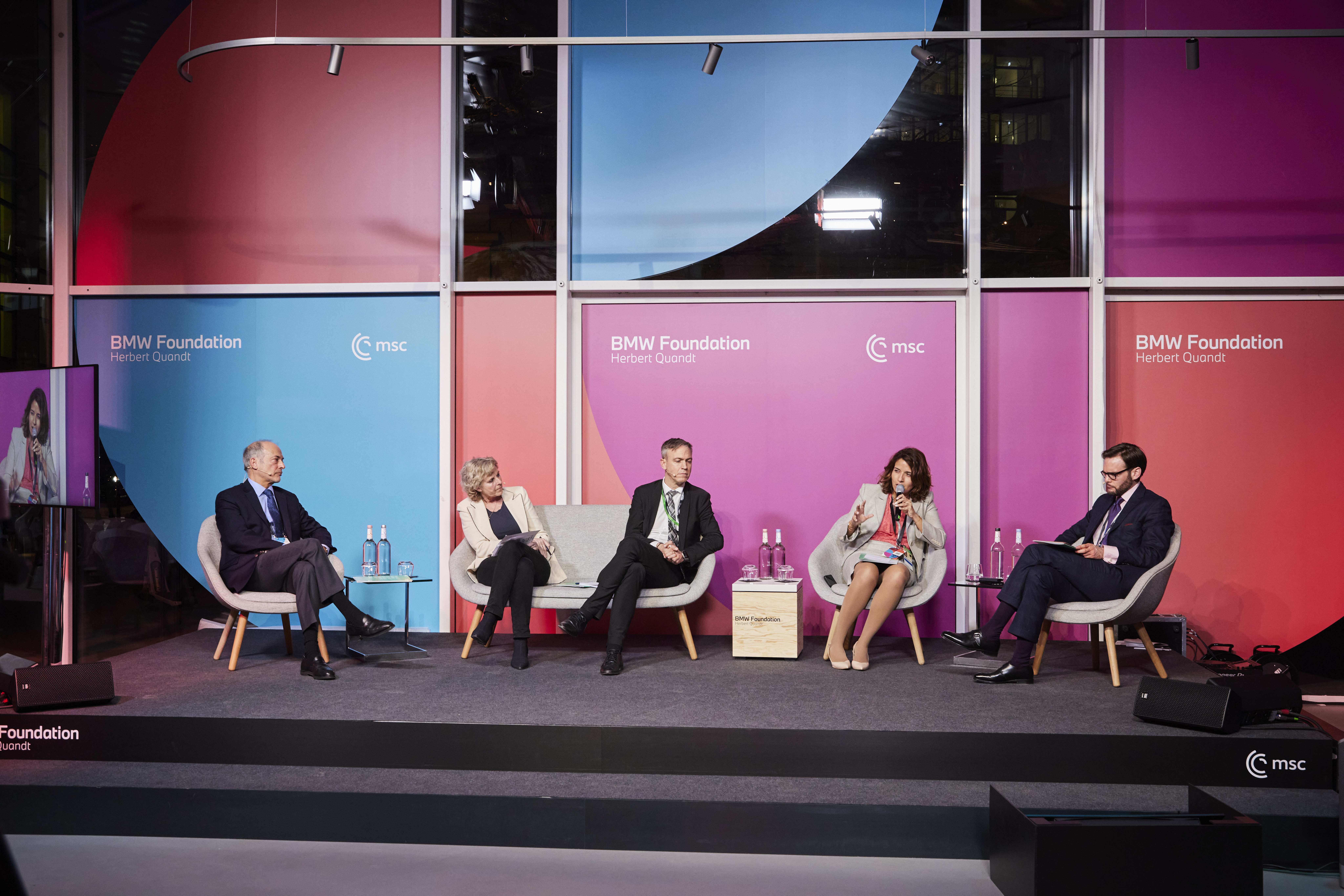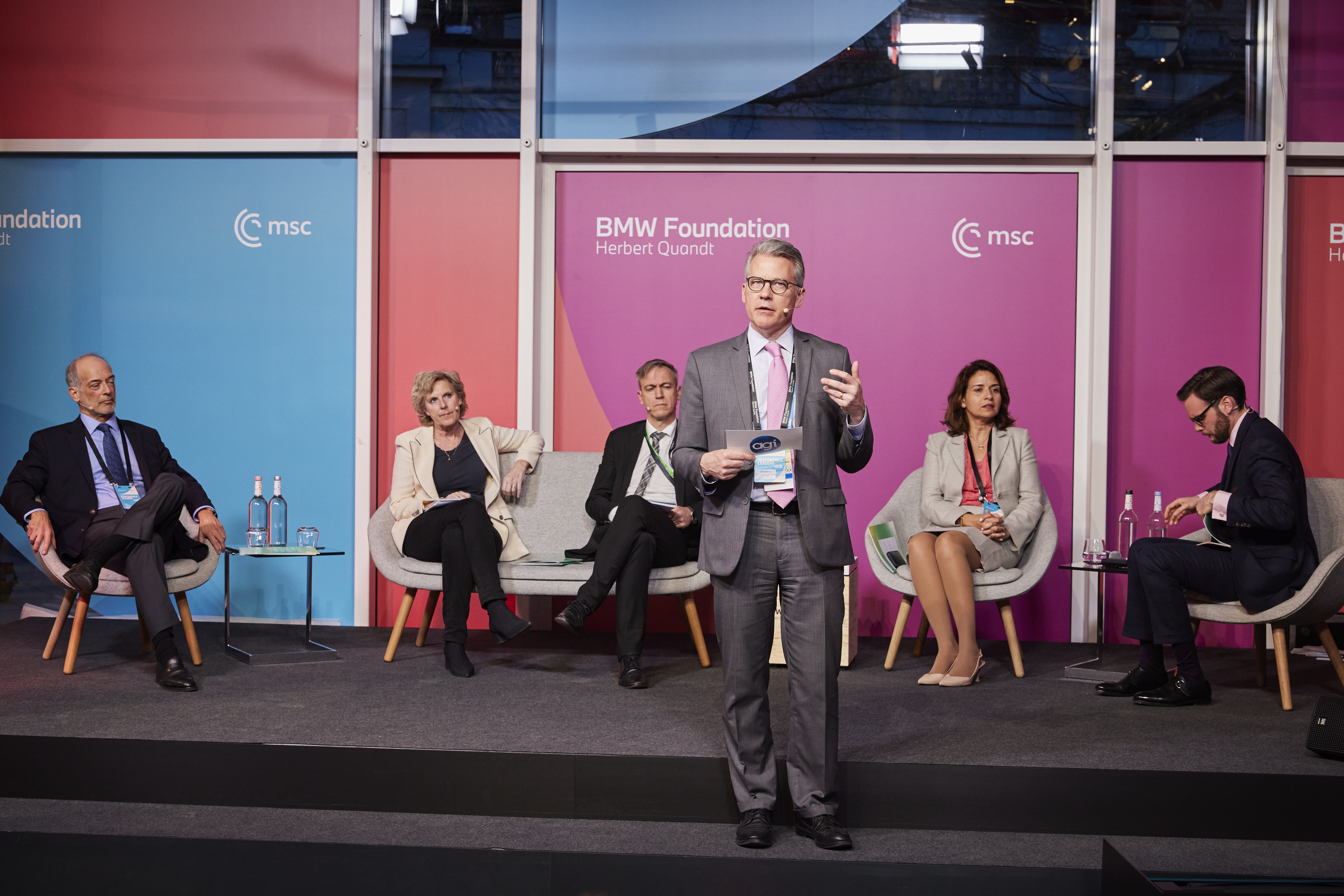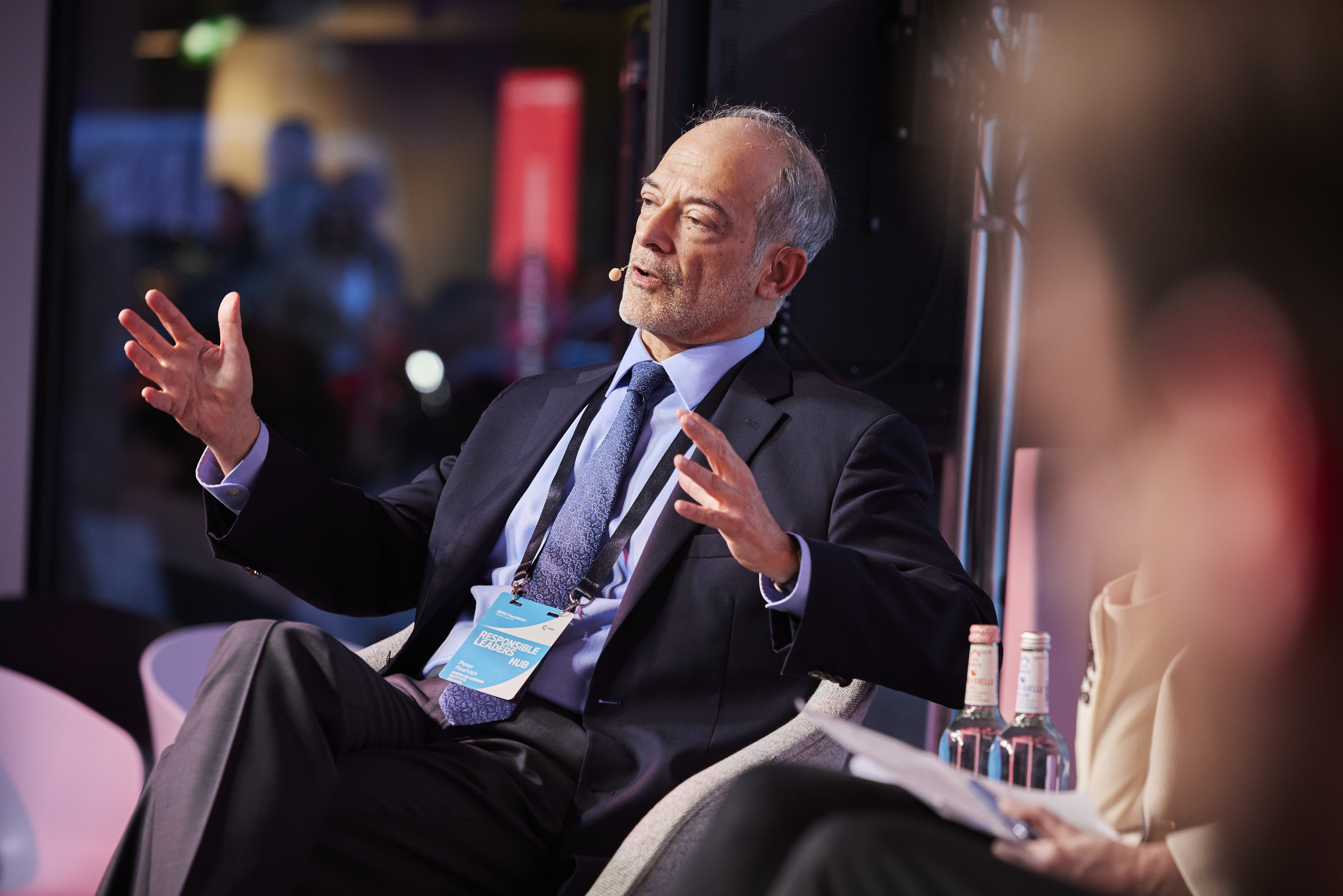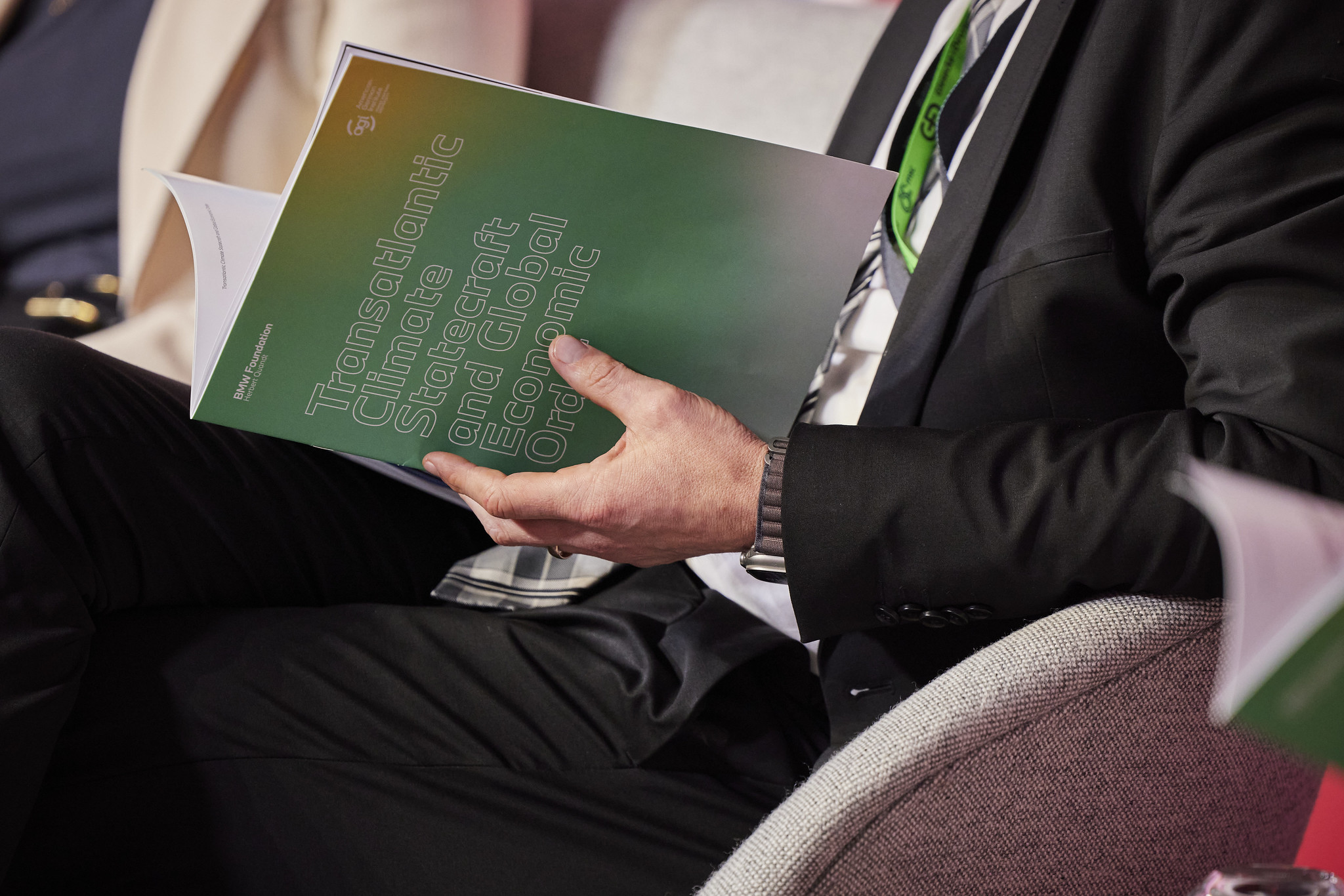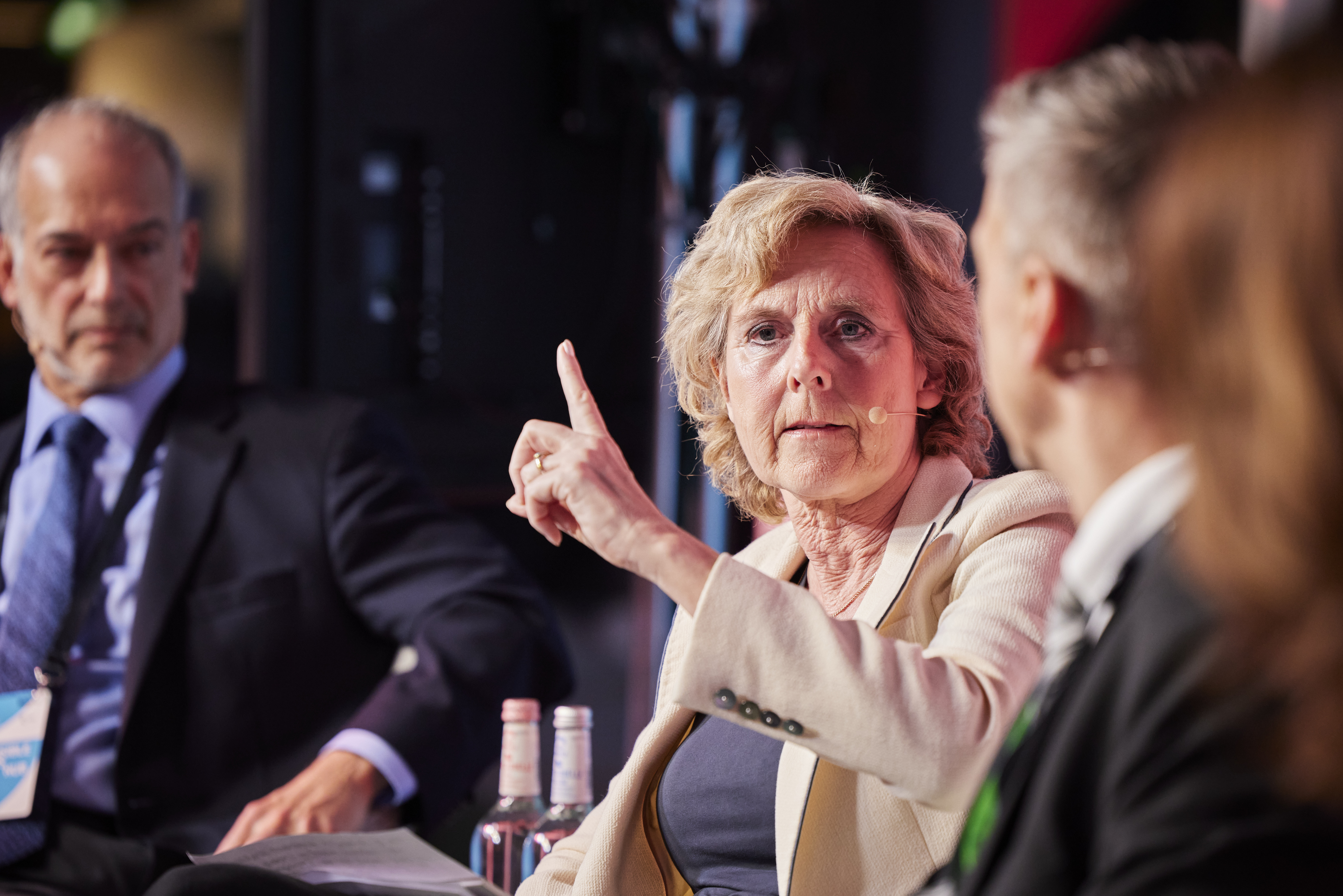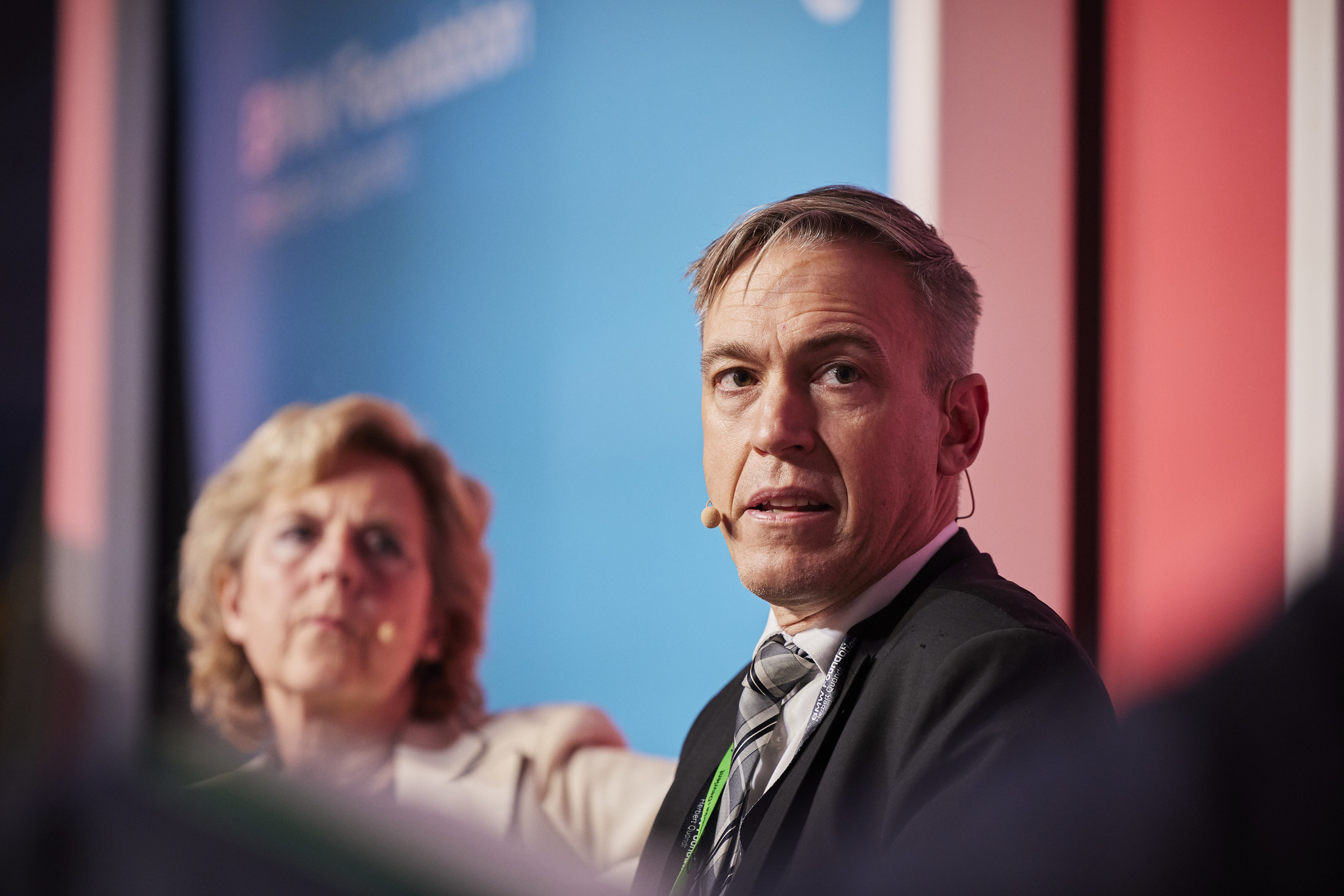
Transatlantic Climate Statecraft
Building a Sustainable Global Economic Order
The United States, Germany, and the European Union face a global economic order that has been irreversibly disrupted by the existential threat of climate change. In response, they will need to fashion an innovative climate statecraft that promotes new rules, new agreements—and even new institutions—to help shape the global economy of the future.
Climate change is not the only cause of the current period of international economic mutation—the rise of China’s state capitalist system, a World Trade Organization whose rules have not been updated in over twenty-five years, and the onrush of new technologies like artificial intelligence also play a role. And it is a global problem, not only a U.S. or European one. But without concerted transatlantic climate statecraft there will be little chance to achieve a reformed global economic order that is sustainable, equitable, and secure. This AGI-BMW Foundation project aims to spur dialogue and policy innovation on this ineluctable challenge to both societies.
Project Description

The American-German Institute and the BMW Foundation are launching a new, three-part project on Transatlantic Climate Statecraft: Building a Sustainable Global Economic Order. Informing this project is the conviction that the United States, Germany, and the European Union face a global economic order that has been irreversibly disrupted, requiring them to integrate international economic and climate policy to promote new rules, new agreements, and perhaps even new institutions to respond to this changing external environment.
It is clear that an update to globalization is needed if the transatlantic economies are to continue to thrive and the climate is to be preserved. The goal of such reform should be for the global economy to continue not only to foster more economic growth but also better economic growth that is sustainable, equitable, and secure.
To do this, the United States and its key European partners will need to fashion an innovative transatlantic climate statecraft that helps ensure that World Trade Organization rules, a potential “Climate Club” championed by the German government within the G7, the EU Carbon Border Adjustment Mechanism (CBAM), and U.S.-EU negotiations on a Global Arrangement on Steel and Aluminum work in concert and produce outcomes that both foster decarbonization and enhance global economic order.
This project will unfold around three pillars: U.S.-EU bilateral cooperation; plurilateral efforts of a broader group of like-minded economies; and at the global level. In the future, reinforcing order in the global economy so that it advances U.S. and European values like climate protection will require working at all three levels to capture the full opportunities for policy innovation and as the global economy becomes less driven by formal institutions.
“Climate Statecraft and Global Economic Order: For A Renewed Transatlantic Partnership,” the panel co-sponsored by AGI and the BMW Foundation Herbert Quandt at the Responsible Leaders Hub at the Munich Security Conference, is available to watch online.



